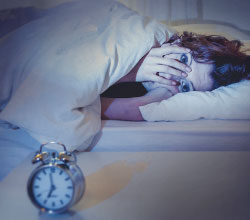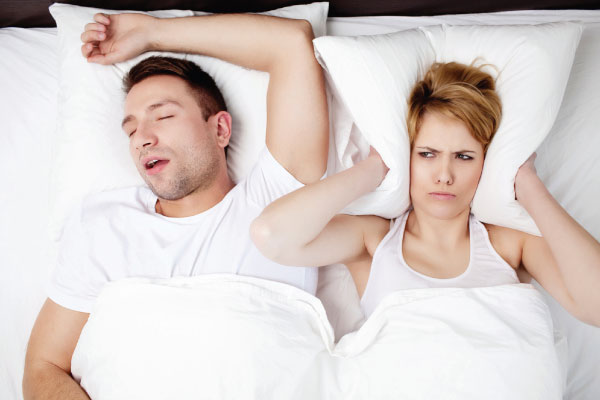In our quest to ‘do more’ in our lifetime, we tend to undermine our basic need of quality shut-eye time. There’s a reason it’s called ‘beauty sleep’; so stop making that dreadful mistake in your life — starting tonight!
If you are one of millions the world over who hate their alarm clock but love the snooze button, maybe it’s time to evaluate if you are getting enough sleep. Often considered a waste of precious hours, adequate sleep is actually important for the wellbeing and functioning of the body during the daytime.
Lack of sleep can cause daytime drowsiness, lapses in attention, and hinders learning, creativity and multitasking. It’s no wonder that sleeplessness is also one of the main causes of fatal road accidents. Our experts explain the basics.
Wide awake
Our expert: Dr Ram Vatwani, neurologist at NeuroCare
 Sleep is a rhythm of the body’s biological clock. A disrupted biological clock causes excessive or no sleep. Lack of sleep doesn’t allow our cells to regenerate for the next day’s activities. It also leads to other neurological disorders.
Sleep is a rhythm of the body’s biological clock. A disrupted biological clock causes excessive or no sleep. Lack of sleep doesn’t allow our cells to regenerate for the next day’s activities. It also leads to other neurological disorders.
Insomnia is the difficulty of initiating sleep at night and is a sign of anxiety.
If this continues over a period of time, it leads to chronic anxiety, relating to fears of the future concerning to one’s career, health and family issues.
“Some patients can fall asleep easily but wake up in the wee hours of the morning. This is called early morning insomnia, which is a diagnostic criterion of depression,” says Dr Vatwani.
Disrupted sleep can also be caused by amphetamines or stimulants, and severe jetlag. Melatonin is a natural over-the-counter supplement that helps regulate the biological clock for those who want to avoid the effects of jetlag.
It is proven that lack of sleep raises the risk of heart attacks up to three times than someone with normal sleep. High blood pressure can disrupt normal sleep patterns, further raising the risk of heart attack.
“Reduction of sleep by just two hours raises the risk of mortality by 1.7 times,” the expert says. “Over the years, lack of sleep due to incessant use of mobile phones and workaholism has a cumulatively devastating effect on one’s health.”
Sleep Apnoea
Our expert: Dr Jitendra Patel, ENT specialist at Sleep Well Clinic
Victims of sleep apnoea experience obstructed or shallow breathing for 10-20 seconds while they sleep. This causes a shortfall of oxygen in the body, due to which the brain signals the body to wake up as a defence mechanism.
Frequent bouts of low oxygen throughout the night leave one tired, with a headache and anything but well-rested the next morning. “There are three types of sleep apnoea: central, obstructive and a combination of the two called complex sleep apnoea,” Dr Patel explains.
Central sleep apnoea is caused due to the brain failing to send signals to the muscles responsible for breathing to do their job. Obstructive sleep apnoea patients suffer breathing problems due to a deviated septum (the thin wall separating the two nasal airways) or enlarged turbinates (thin, mucus covered bones on the inside walls of the nose). Some people have an unusually long palate, which falls just behind the tongue when they lie down. This obstructs the
airway and causes loud snoring when the palate vibrates.
“A sleep study determines the type and severity of the disorder. While the patient sleeps, their oxygen levels and brain activity are measured to pinpoint the exact cause of the problem,” says Dr Patel.
Due to the brain being frequently deprived of oxygen over time this disorder causes short term memory loss. Latest medical research blames sleep apnoea to cause hypertension.
Dr Patel says that obese adults and children are more prone to sleep apnoea. The fat in the throat region and the thickness of the tongue, narrow the airways. It can be treated surgically or with the use of certain apparatus during sleep. Practical precautions like sleeping on one’s side also help alleviate the problem.
Fizzy legs
Our expert: Dr Reyadh Salman, consultant — chest, critical care, sleep medicine at Ibn Al Nafees Hospital
Do you feel a strong urge to move your legs along with an uncomfortable leg sensation while you relax, especially during the evening or night? Do you get temporary relief from the urge to move when you do move? If you answered ‘yes’ to the above, you possibly have Restless Leg Syndrome (RLS).
RLS affects one in 10 adults in the USA. It is a common problem with women, especially those who are pregnant, with one in four expectant women facing this niggling issue. Despite its obvious symptoms and easy prognosis, laymen and professionals are unaware of it.
“RSL could affect not only the legs, but the arms as well. Doctors hear different descriptions of the annoying feeling ranging from creepy, tingling, numbness, or even the feeling of cola in the legs,” says Dr Salman.
Primary RLS is when the cause of the disorder is unknown. In secondary RLS, the cause could be a deficiency in iron, kidney problems or pregnancy. It could also be due to neurological disorders like stroke or Parkinsonism.
Similar to RLS is a condition called periodic limb disorder. It is often a patient’s bed partner who notices jerky, involuntary movements (much like kicking) during sleep; a typical characteristic of this disorder.
The brain waves during a polysomnograph indicate that periodic limb movements lead to arousal from sleep. They fragment the sleep, resulting in daytime fatigue, low concentration and grogginess.
“Sleep has to be consolidated, uninterrupted, and with smooth transition from one sleep stage to another. So it’s not only the amount, but also the quality of sleep that is important,” says our expert.
Thirty per cent of unlucky RLS sufferers also have period limb disorder. Symptoms range from mild to severe and can be treated according to the cause of the disorder.





































